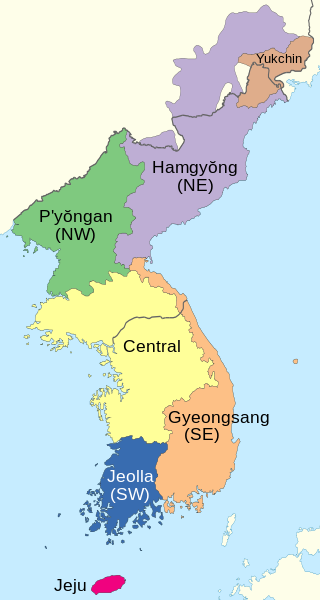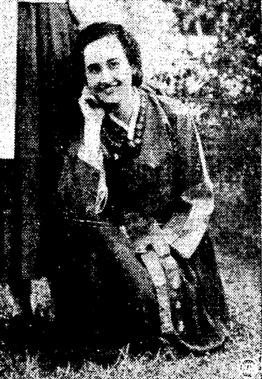Related Research Articles
Telecommunications in North Korea refers to the communication services available in North Korea. North Korea has not fully adopted mainstream Internet technology due to its isolationist policies.

Kim Jong-il was a North Korean politician who was the second supreme leader of North Korea from 1994 to 2011. He led North Korea from the 1994 death of his father Kim Il-sung, the first Supreme Leader, until his own death in 2011, when he was succeeded by his son, Kim Jong-un.
Human experimentation in North Korea is an issue raised by some North Korean defectors and former prisoners. They have described suffocation of prisoners in gas chambers, testing deadly chemical weapons and surgery without anesthesia.
Radio Free Asia (RFA) is a United States government-funded private non-profit news service that broadcasts radio programs and publishes online news, information, and commentary for its audiences in Asia. The service, which provides editorially independent reporting, has the mission of providing accurate and uncensored reporting to countries in Asia that have poor media environments and limited protections for press freedom and freedom of speech.

A number of Korean dialects are spoken on the Korean Peninsula. The peninsula is very mountainous and each dialect's "territory" corresponds closely to the natural boundaries between different geographical regions of Korea. Most of the dialects are named for one of the traditional Eight Provinces of Korea. Two are sufficiently distinct from the others to be considered separate languages, the Jeju and the Yukjin languages.

Ahn Changho, sometimes An Chang-ho was a Korean independence activist and one of the early leaders of the Korean-American immigrant community in the United States. He is also referred to by his pen name Dosan. A Protestant social activist, he established the Shinminhoe when he returned to Korea from the US in 1907. It was the most important organization to fight the Japanese occupation of Korea. He established the Young Korean Academy in San Francisco in 1913 and was a key member in the founding of the Provisional Government of the Republic of Korea in Shanghai in 1919. Ahn is one of two men believed to have written the lyrics of "Aegukga", the South Korean national anthem. Besides his work for the Independence Movement, Dosan wanted to reform the Korean people's character and the entire social system of Korea. Dosan's key efforts were in educational reforms and modernizing. He was the father of actors Ralph, Philip Ahn, and US Navy Lieutenant Susan Ahn Cuddy, who also later worked for the Office of Naval Intelligence, the National Security Agency, the Library of Congress, and the US Department of Defense.

Munhwa Broadcasting Corporation is one of the leading South Korean television and radio broadcasters. Munhwa is the Sino-Korean word for "culture". Its flagship terrestrial television station MBC TV broadcasts as channel 11.

Park Geun-hye is a South Korean politician who served as the 11th president of South Korea from 2013 to 2017, until she was impeached and convicted on related corruption charges.

Anna Wallis Suh (1900–1969), the woman generally associated with the nickname "Seoul City Sue," was an American Methodist missionary, educator, and North Korean propaganda radio announcer to United States forces during the Korean War.

Lee Myung-bak is a South Korean businessman and politician who served as the 10th president of South Korea from 2008 to 2013. Before his presidency, he was the CEO of Hyundai Engineering and Construction, and the mayor of Seoul from 2002 to 2006.

Hwang Jang-yop was a North Korean politician who served as the Chairman of the Supreme People's Assembly from 1972–1983 and was largely responsible for crafting Juche, the state ideology of North Korea. He defected to South Korea in 1997, the highest-ranking North Korean to have defected.
The mass media in North Korea is amongst the most strictly controlled in the world. The constitution nominally provides for freedom of speech and the press. However, the government routinely disregards these rights, and seeks to mold information at its source. A typical example of this was the death of Kim Jong-il, news of which was not divulged until two days after it occurred. Kim Jong-un, who replaced his father as the leader, has largely followed in the footsteps of both his grandfather, Kim Il-sung, and his father. However, new technologies are being made more freely available in the country. State- run media outlets are setting up websites, while mobile phone ownership in the country has escalated rapidly. “There is no country which monopolizes and controls successfully the internet and information as North Korea does,” said Kang Shin-sam, an expert on North Korean technology and co-head of the International Solidarity for Freedom of Information in North Korea, a nonprofit based in South Korea. North Korea now has about four million mobile-phone subscribers—roughly one-sixth of the population and four times the number in 2012, according to an estimate by Kim Yon-ho, a senior researcher at Johns Hopkins University's School of Advanced International Studies.

Ahn Eak-tai was a South Korean classical composer and conductor. He conducted numerous major orchestras across Europe, including the Vienna Philharmonic Orchestra, the Berlin Philharmonic Orchestra, and the Rome Philharmonic Orchestra. Ahn composed "Aegukga", a song best known as the national anthem of South Korea, Korean Dance, Nongae, and the Symphonic Fantasy Korea. His unpublished works, some of which have been discovered recently, include Poema Synfonic 'Mallorca, Lo Pi Formentor, and The Death of Emperor Gojong.
Roy Chung is widely believed to be the fifth of six United States Army soldiers to have defected to North Korea after the Korean War.

Okryu-gwan or Okryu Restaurant is a restaurant in Pyongyang, North Korea, founded in 1960. South Korea analyst Andrei Lankov describes it as one of two restaurants, the other being Ch'ongryugwan, which have "defined the culinary life of Pyongyang" since the 1980s, and a "living museum of culinary art".

Kim Il-sung died of a sudden heart attack on the early morning of 8 July 1994 at age 82. North Korea's government did not report the death for more than 34 hours after it occurred. An official mourning period was declared from 8–17 July, during which the national flag was flown at half mast throughout the country, and all forms of amusement and dancing were prohibited.

Sung-Yoon Lee is a scholar of Korean and East Asian studies, and specialist on North Korea. He is the Kim Koo-Korea Foundation Professor in Korean Studies and assistant professor at the Fletcher School of Law and Diplomacy, Tufts University. He was an associate in research at the Korea Institute, Harvard University. and a research fellow at the National Asia Research Program.
Pak Se-yong was a North Korean poet and politician, best known for writing the lyrics of "Aegukka", the national anthem of North Korea.

Park Sang-hak is a North Korean democracy activist and is the chairman of Fighters for a Free North Korea.